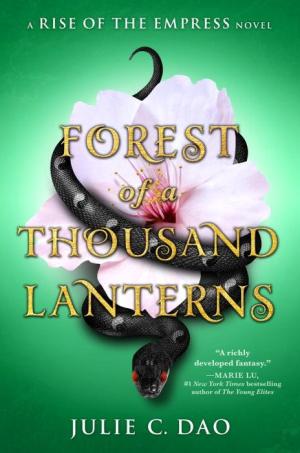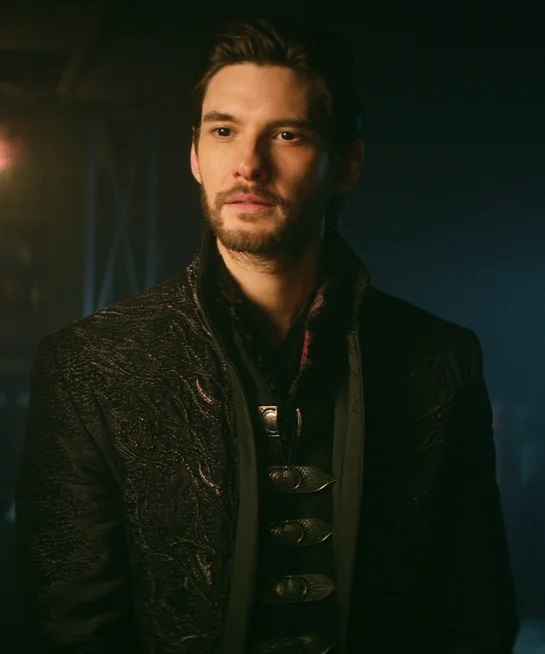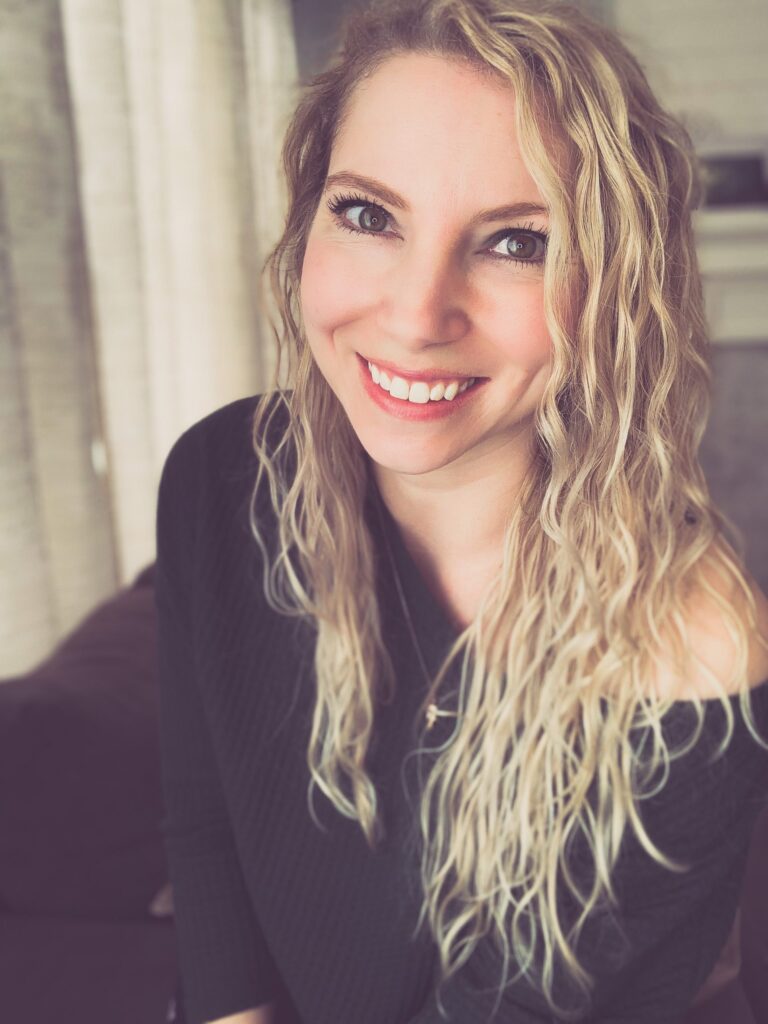Why we should let girls read, and relate to, morally grey heroines, a guest post by Cyla Panin

I got a text a few days ago from a friend. She’s reading a copy of my debut YA fantasy, STALKING SHADOWS, and she’s been giving me wonderful live updates chapter to chapter. Well, this time her text went like this, “I don’t like what Marie did!”
Ah. Yes. Me either.
I don’t want to spoil anything, but let’s just say that my main character, Marie, definitely made a questionable decision involving someone she’s growing to care for. Her decision might even hurt him, though she’s certain she has it all under control enough that the damage will be mild and temporary. Do I, as a human with a heart, agree with what she did?
ADVERTISEMENT
ADVERTISEMENT
No.
So why did I write it?
Because I understand why Marie had to make a bad decision. Her circumstances left her very few choices, and her commitment to protecting her sister, and ultimately herself, has never wavered. She does the best she can with the situation she’s in, and I think that’s more real and relatable than always doing the right and heroic thing.
None of us will always make the best choice, the most selfless or most noble. At least, I have yet to encounter anyone who can claim they’ve always, without fail, done the absolute right thing. That level of perfection rarely exists in the real world, and yet we continually hold our female protagonists up to this unachievable standard. If they fail the test, they might be labelled as unlikeable, or even as an anti-hero that readers have a hard time getting behind.
Fantasy is escapist. We can sink into the world’s authors create and join the characters as they do things we never would—or could. Fighting a dragon, traipsing over mountains and through meadows with a sword at our hip, dancing in a flowing gown in a ballroom, running into enchanted woods at night. The realest thing in any fantasy should still be the characters and their emotions. Their drive. Underneath all of this magic, we should be anchored by what the human lives unspooling through this dark, glittering world.
Girl protagonists have a right to take the drags of whatever awful situation they’ve found themselves in and try to piece together a solution to reach their goals, even if that solution makes some people give them the side eye. Girl readers have the right to see heroines in books be just as angry, brash, impulsive, and determined as any heroes can be. And they have to right to see them not only succeed, but be embraced for their fire and ingenuity.

In Julie C. Dao’s 2017 YA fantasy, FOREST OF A THOUSAND LANTERNS, the main character Xifeng is faced with embracing darkness or sacrificing the power she could wield. Thankfully, Dao has her protagonist decide grasp whatever power she can. As a reader, I could emphasize with Xifeng and why she made those decisions, even if they sometimes made me uncomfortable. She came from hardship, poverty, and was faced with a beautiful palace and magic—I mean, that doesn’t seem like a hard choice. It was Dao’s skillful character building that showed us her main character’s drive, so readers could emphasize and stand beside Xifeng even when she did things some might label ‘evil.’
There was some outrage about Xifeng being an unlikeable character, though. Certain readers shook their heads and pursed their lips and got on Goodreads to air their distaste. What I didn’t get then is why they felt like they needed to like Xifeng to understand her.

When male main characters do bad things, readers tend to be much more forgiving. We don’t have to look much further than The Darkling in the SHADOW AND BONE series by Leigh Bardugo or Ronan Lynch in THE RAVEN’S CIRCLE by Maggie Stiefvater to find bad boys who have been embraced, and even loved, despite the pain they inflict on others or the ends they go to in order to get what they want. But boys will be boys, right?
Wrong. People will be people. All characters will, with good literary craft, be products of their world and upbringing. They’ll be shaped by the past, as we all tend to be, and they’ll decide whether or not they’re defined by it. They’ll give us enough glances into their hearts that we’ll be rooting for them whether or not we agree with their actions.
ADVERTISEMENT
ADVERTISEMENT
The word I think best describes Marie Michaud in STALKING SHADOWS is ‘determined’. She doesn’t much care about being liked, but she sure does care about achieving her goal. I won’t be giving anything away when I say she selects her sister’s victims (because it’s in the pitch.) Marie choses who’s going to die by her sister’s claws. She marks unmoored men, those who aren’t well known in the village, those who are just passing through, those that she forces herself to believe don’t have any family to miss them. She selects these men because, in her mind, it’s better them than someone people will cry over. She elects to destroy one life instead of two or three or four, depending on the size of the family. It’s not right, by any estimation, even hers, but in the confines of her world and the hand she’s been dealt, she does her best. And really, is there anything more relatable than that?
Meet the author

Cyla Panin is an MG, YA and Adult Author who prefers to look at the world through a dusting of magic. Her YA debut, STALKING SHADOWS will be out with Amulet, Abrams Sept. 14. She is represented by Chloe Seager of the Madeleine Milburn Literary, TV, and Film Agency. Find her on Instagram at @cylapanin.
About Stalking Shadows
A gothic YA fantasy debut about a young woman striving to break her sister’s curse and stop the killing in her small French town
Seventeen-year-old Marie mixes perfumes to sell on market day in her small eighteenth-century French town. She wants to make enough to save a dowry for her sister, Ama, in hopes of Ama marrying well and Marie living in the level of freedom afforded only to spinster aunts. But her perfumes are more than sweet scents in cheap, cut-glass bottles: A certain few are laced with death. Marie laces the perfume delicately–not with poison but with a hint of honeysuckle she’s trained her sister to respond to. Marie marks her victim, and Ama attacks. But she doesn’t attack as a girl. She kills as a beast.
Marking Ama’s victims controls the damage to keep suspicion at bay. But when a young boy turns up dead one morning, Marie is forced to acknowledge she might be losing control of Ama. And if she can’t control her, she’ll have to cure her. Marie knows the only place she’ll find the cure is in the mansion where Ama was cursed in the first place, home of Lord Sebastien LaClaire. But once she gets into the mansion, she discovers dark secrets hidden away–secrets of the curse, of Lord Sebastien . . . and of herself.
ISBN-13: 9781419752650
Publisher: Amulet Books
Publication date: 09/14/2021
Age Range: 12 – 18 Years
Filed under: Uncategorized
About Amanda MacGregor
Amanda MacGregor works in an elementary library, loves dogs, and can be found on Twitter @CiteSomething.
ADVERTISEMENT
ADVERTISEMENT
SLJ Blog Network
One Star Review, Guess Who? (#211)
Cover Reveal and Q&A: Dusti Bowling’s Latest – The Beat I Drum (Apr 2025)
Girlmode | Review
The Seven Bills That Will Safeguard the Future of School Librarianship
Gayle Forman Visits The Yarn!
ADVERTISEMENT







